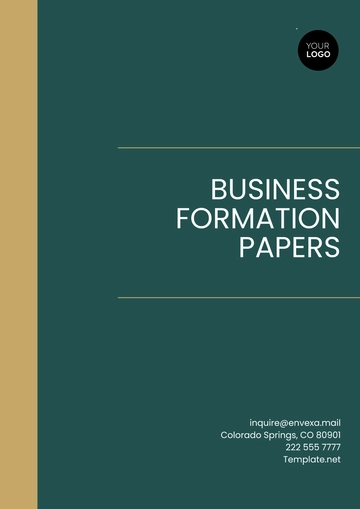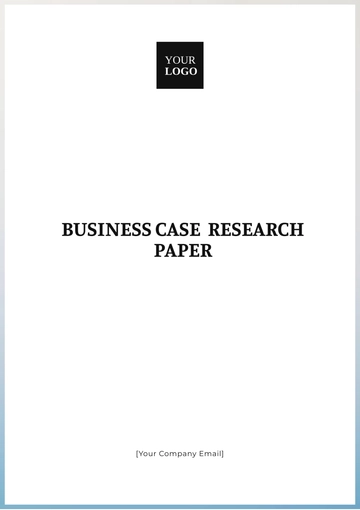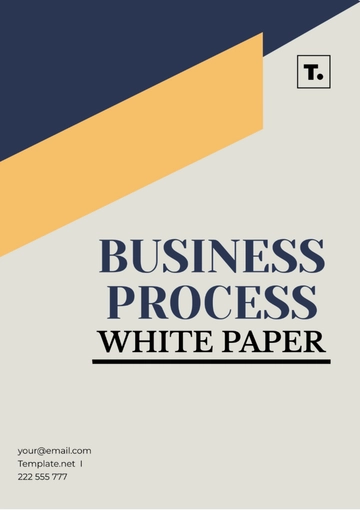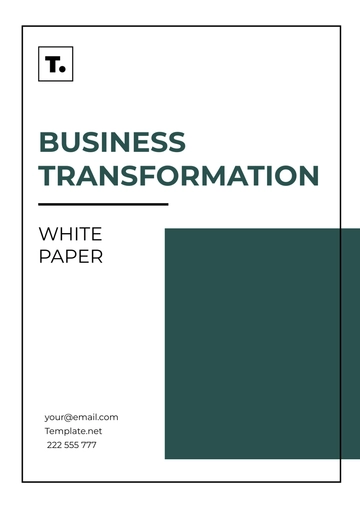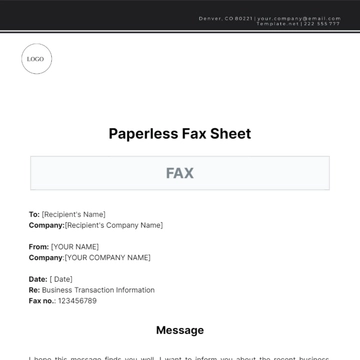Free Business Case Research Paper
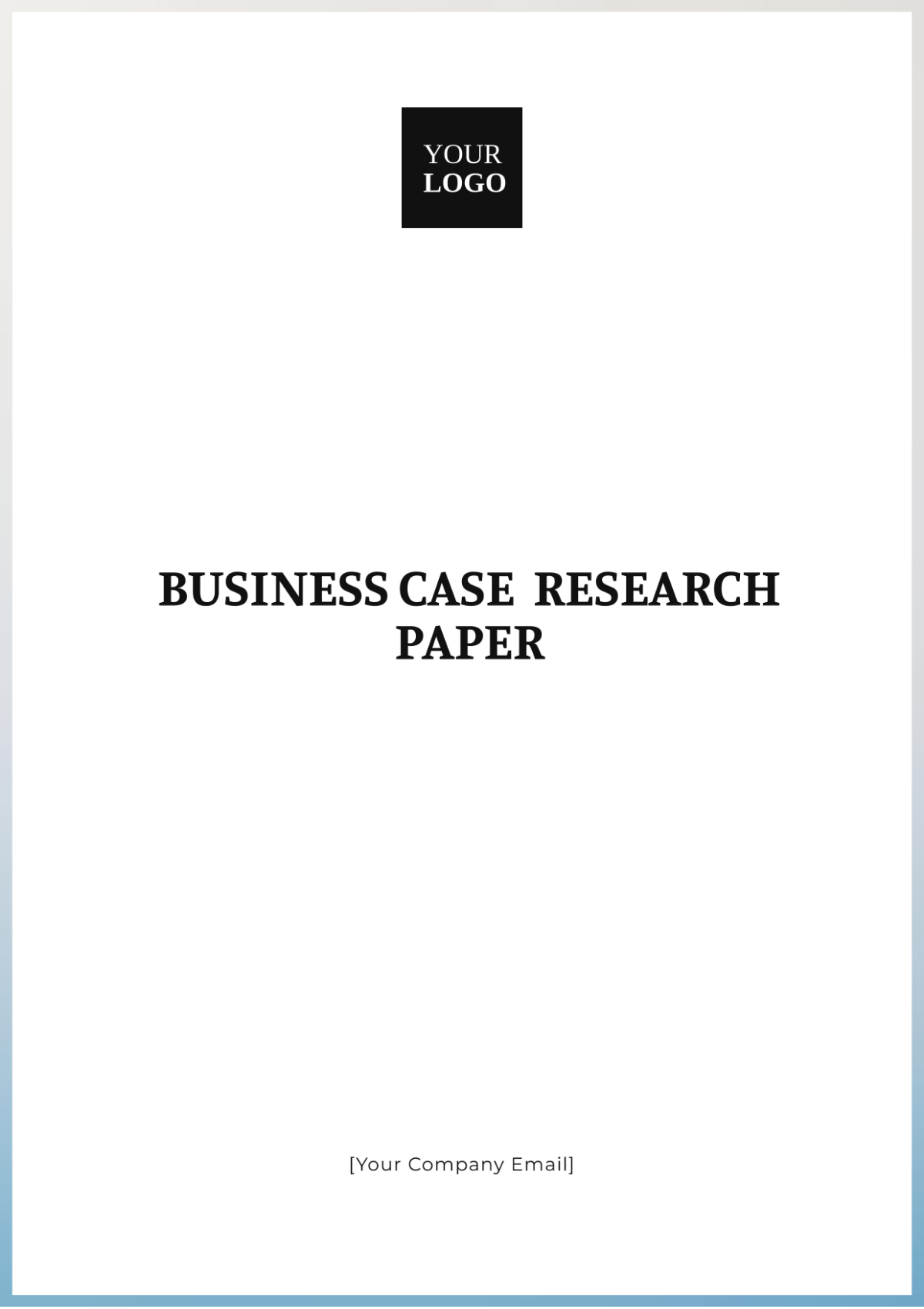
Introduction
In a rapidly evolving business environment, enhancing the efficiency and effectiveness of business processes is imperative for sustaining competitive advantage. This research aims to propose changes to existing processes or systems to achieve efficiency gains. By examining current methodologies, identifying inefficiencies, and suggesting targeted improvements, organizations can streamline operations, reduce costs, and increase productivity.
Current Business Processes: Issues and Inefficiencies
Process Mapping and Analysis
To identify inefficiencies, it's crucial first to have a clear understanding of the existing processes. This involves:
Mapping out every step of the process
Identifying stakeholders and their roles
Assessing resource allocation
A comprehensive process map provides a visual representation that aids in pinpointing bottlenecks and redundant steps.
Common Inefficiencies
Common inefficiencies found in business processes include:
Redundant tasks or duplications
Manual processes that can be automated
Poor communication and information silos
Inadequate resource allocation
Proposed Changes for Efficiency Gains
Automation and Technology Integration
Introducing automation and integrating technology can drastically improve efficiency. This can be achieved by:
Implementing automated workflows
Utilizing AI and machine learning for data analysis and decision-making
Adopting cloud-based solutions for better accessibility and collaboration
Streamlining Communication and Collaboration
Enhancing communication and collaboration involves:
Implementing collaborative platforms (e.g., Slack, Microsoft Teams)
Encouraging regular meetings and updates
Centralizing information storage and sharing
Lean Management Techniques
Lean management focuses on minimizing waste and maximizing value. Techniques include:
Just-in-time production
Kaizen (continuous improvement)
5S (Sort, Set in order, Shine, Standardize, Sustain)
Employee Training and Development
Investing in employee training can lead to significant efficiency gains. Key aspects include:
Providing training on new technologies and processes
Encouraging skills development and continuous learning
Promoting cross-functional training to enhance versatility
Case Studies and Examples
Company | Initiative | Results |
|---|---|---|
Toyota | Implementation of Lean Manufacturing | Reduced waste and increased production efficiency |
Amazon | Automation in Warehousing | Faster order fulfillment and cost reductions |
IBM | Adoption of AI for Data Analysis | Improved decision-making and operational efficiency |
Challenges and Considerations
While implementing changes, organizations may face the following challenges:
Resistance to change from employees
High initial investment costs
Complexity in integrating new technologies
Addressing these challenges requires careful planning, effective change management strategies, and ongoing support and training for employees.
Conclusion
Improving business processes through targeted changes can lead to substantial efficiency gains. By leveraging automation, enhancing communication, adopting lean management techniques, and investing in employee development, organizations can streamline operations and maintain a competitive edge. The proposed recommendations, supported by case studies, demonstrate the tangible benefits of process improvements in achieving operational excellence.
References
Here are some of the references utilized for this research:
Womack, J. P., & Jones, D. T. (2050). Lean Thinking: Banish Waste and Create Wealth in Your Corporation. Simon and Schuster.
Goldratt, E. M., & Cox, J. (2054). The Goal: A Process of Ongoing Improvement. Routledge.
Amazon. (2055). "Amazon's approach to automation in warehousing".
IBM. (2058). "AI Implementation Case Study".
- 100% Customizable, free editor
- Access 1 Million+ Templates, photo’s & graphics
- Download or share as a template
- Click and replace photos, graphics, text, backgrounds
- Resize, crop, AI write & more
- Access advanced editor
Present a compelling business case with Template.net's Business Case Research Paper Template. This customizable and editable template, available in our Ai Editor Tool, helps you build a persuasive argument supported by thorough research. Ideal for crafting research papers that drive business decisions and strategic planning.

